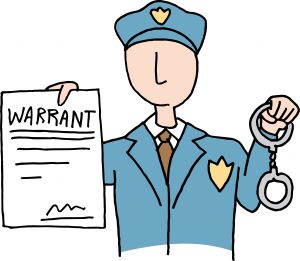 Most people have heard through school, interaction with the judicial system, television shows or otherwise that there is a constitutional right to jury trial for people charged with a crime. This is usually true, but it is not true in every case. There is an exception for certain minor crimes where a defendant does not have a right to a jury trial and the judge decides whether or not the defendant is guilty of the crime. That exception involves crimes where the defendant cannot be sentenced to jail or prison for more than six months. In other words, if a defendant is charged with a minor crime and the maximum penalty is six months or less in jail, the defendant is not entitled to a jury trial. The parties might agree to a jury trial or the judge might insist on a jury trial, but the law does not give the defendant a right to a jury trial if he/she wants one and the judge will not allow it. Of course, this would only apply to minor misdemeanors, and it would never apply to felonies. However, some people can be seriously impacted by any criminal conviction no matter how minor the charge or by any time in jail and may want a jury trial to protect his/her rights.
Most people have heard through school, interaction with the judicial system, television shows or otherwise that there is a constitutional right to jury trial for people charged with a crime. This is usually true, but it is not true in every case. There is an exception for certain minor crimes where a defendant does not have a right to a jury trial and the judge decides whether or not the defendant is guilty of the crime. That exception involves crimes where the defendant cannot be sentenced to jail or prison for more than six months. In other words, if a defendant is charged with a minor crime and the maximum penalty is six months or less in jail, the defendant is not entitled to a jury trial. The parties might agree to a jury trial or the judge might insist on a jury trial, but the law does not give the defendant a right to a jury trial if he/she wants one and the judge will not allow it. Of course, this would only apply to minor misdemeanors, and it would never apply to felonies. However, some people can be seriously impacted by any criminal conviction no matter how minor the charge or by any time in jail and may want a jury trial to protect his/her rights.
It is important to understand that a defendant is always entitled to a jury trial in a criminal case if the potential penalty for a conviction of the crime is more than six months. It does not matter if the judge is not likely to sentence the defendant to more than six months in jail or even if the judge says he/she will not do it. As long as the law allows for a sentence of more than six months in jail, the defendant can have a jury trial.
For instance, there was a case just south of Jacksonville, Duval County, Florida where a defendant was charged with possession of less than an ounce of marijuana. This is a misdemeanor crime, but as ridiculous as it may seem, it carries a potential penalty of a year in jail. The defendant wanted a jury trial, but the judge denied the request because he said he had no intention of sentencing the defendant to jail time if he was convicted of the crime. The defendant had his trial with the judge as the decision maker (referred to as a bench trial), the judge found him guilty and the judge sentenced him to no time in jail.
 Jacksonville Criminal Lawyer Blog
Jacksonville Criminal Lawyer Blog


 In Florida, the general rule is that the police cannot search a person’s property without a search warrant or specific consent from the owner of that property. There are exceptions, of course, but a police search without a search warrant or consent is generally going to be illegal. When the police arrest someone, they can always search that person because the police have a right to determine if the suspect has any weapons or evidence that can be destroyed on him/her. However, that search is generally limited to the person and only after a valid arrest. The police cannot go searching a person’s vehicle or home just because of an arrest.
In Florida, the general rule is that the police cannot search a person’s property without a search warrant or specific consent from the owner of that property. There are exceptions, of course, but a police search without a search warrant or consent is generally going to be illegal. When the police arrest someone, they can always search that person because the police have a right to determine if the suspect has any weapons or evidence that can be destroyed on him/her. However, that search is generally limited to the person and only after a valid arrest. The police cannot go searching a person’s vehicle or home just because of an arrest.